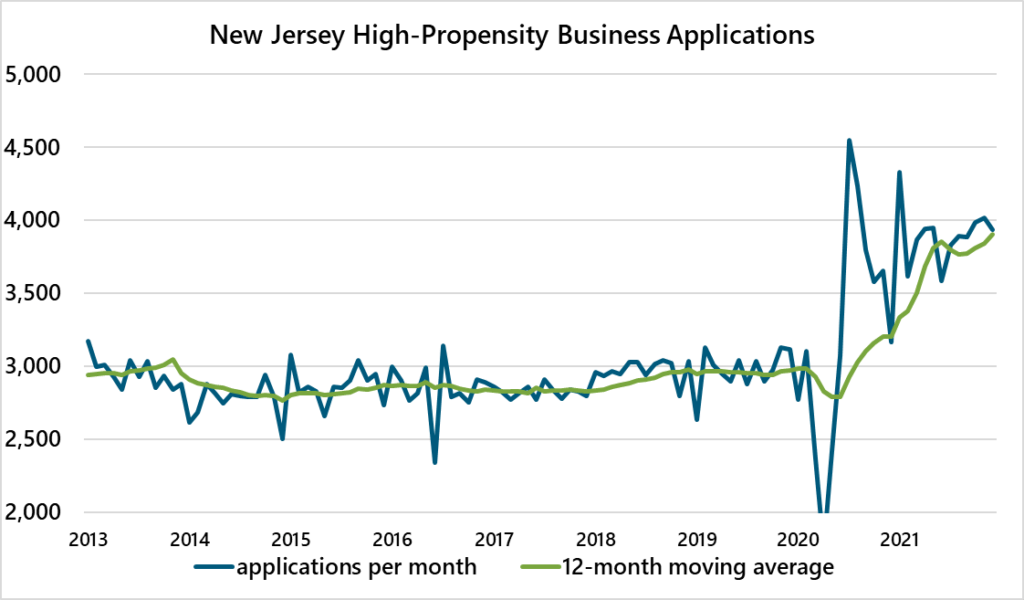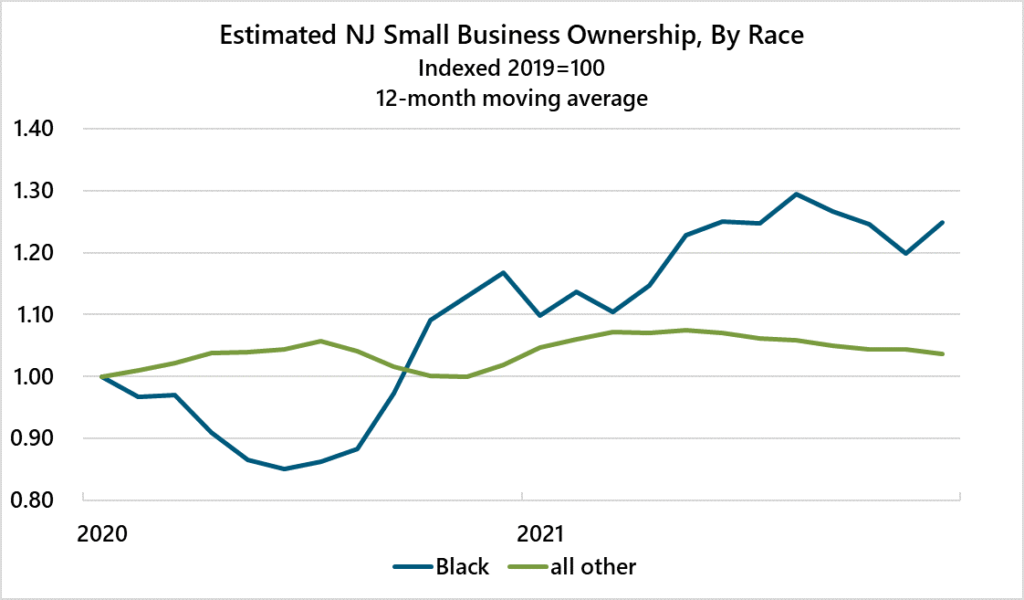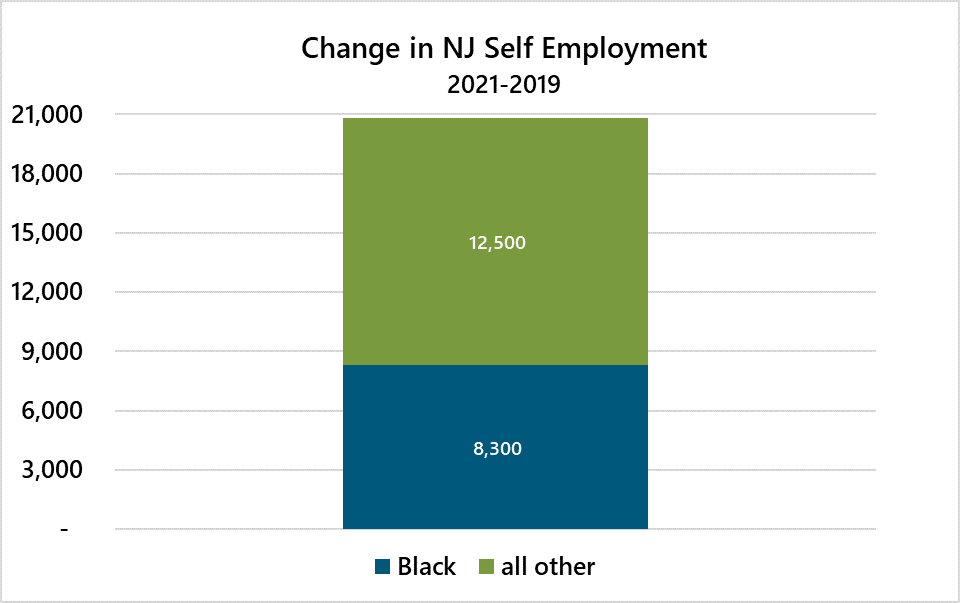Over 2,300 small businesses have received support through the Main Street Recovery Program
TRENTON, N.J. (May 1, 2023) – In recognition of National Small Business Week (April 30 – May 6,) the New Jersey Economic Development Authority (NJEDA) today announced it has issued $85 million in grants and loans to over 2,300 small businesses since the launch of the Main Street Recovery Program in October 2021. Created under Governor Murphy’s Economic Recovery Act (ERA) of 2020, the Main Street Recovery Program provides a comprehensive suite of products designed to support New Jersey small businesses.
“From Cape May to Sussex County, small businesses serve as the backbone of New Jersey’s economy, and especially during the COVID pandemic, supporting our main streets was an essential component of ensuring the sustained vibrancy of our communities and their economic resiliency.” said Governor Phil Murphy. “Under the Main Street Recovery Program, New Jersey continues to invest in our small businesses and their owners, ensuring that our state and local economies continue to thrive today, tomorrow, and for years to come.”
The NJEDA also announced three webinars that will take place during National Small Business Week to highlight resources the NJEDA and other state partners offer to support small business owners. A Spanish-language webinar will be held today, Monday, May 1. A webinar for North Jersey small businesses will be held on Tuesday May 2, and one for Central and South Jersey businesses will be held on Thursday, May 4.
Gov. Murphy’s Fiscal Year 2024 budget proposal includes an additional $50 million for the Main Street Recovery Program.
“Under Governor Murphy’s leadership, New Jersey continues to prioritize small businesses by providing them with a suite of products designed to ensure that they have the tools necessary to succeed,” said NJEDA Chief Executive Officer Tim Sullivan. “When the pandemic hit, the NJEDA, under the Economic Recovery Act, worked diligently to craft a suite of products that injected millions of dollars of capital into New Jersey’s main streets. Today, the Main Street Recovery Program has supported and continues to assist thousands of small business owners expand and thrive.”
The Main Street Recovery Program is budgeted to provide $150 million to support the growth and success of small businesses as they emerge from the COVID-19 pandemic. Since the program launched in 2021, 330 small businesses have been approved for the Small Business Lease Grant, which provides funding to help businesses who leased new space or expanded their commercial space. 1,250 small businesses have been approved for the Small Business Improvement Grant, which reimburses grantees for 50 percent of the cost of capital improvements, furniture, fixtures, and equipment at their facilities.
In June 2022, the NJEDA launched the Main Street Micro Business Loan to help early-stage micro businesses access up to $50,000 in financing. Since it launched, 735 New Jersey micro businesses, which typically face hardships in accessing traditional financing, have received a combined $35.4 million.
Morph Mentoring, an organizational development corporation located in Neptune, Monmouth County, received the Small Business Lease Grant, which helped it maintain its original location and open a second location. With the Micro Business Loan, Morph Mentoring increased its marketing and improved its online presence.
“I am honored and very appreciative of all the help Morph Mentoring received from the NJEDA,” said Chelsey Brunson, Owner and CEO of Morph Mentoring. “With this incredible funding, we have been able to sustain and expand our business significantly. From doubling our staff to opening a second location, this would not have been possible were it not for the NJEDA support.”
In Marlton, Burlington County, Zed’s Beer is using a Micro Business Loan to invest in larger contracts with suppliers, allowing the company to manage lingering supply chain shortages. The South Jersey brewery was also able to use the Small Business Improvement Grant to offset the cost of creating an outdoor space to accommodate patrons during the pandemic. Zed’s was also able to keep its entire staff on payroll during the pandemic and purchase PPE with the help of NJEDA COVID-relief programs.
“Access to more working capital lets us make better deals than we would have been able to make with tighter cash flow, helping keep our prices down, and maintaining similar margins to what we had pre-COIVD,” said Lori White, co-founder of Zed’s Beer. “We are grateful that, with the support from the NJEDA, we were able to keep our staff, grow our business, and keep serving our loyal customers across South Jersey.”
With the Small Business Improvement Grant, the Micro Business Loan, and COVID-relief programs, Arepa Express in Passaic was able to grow its business, avoid staff layoffs, and continue paying its rent and utilities. Additionally, Arepa Express purchased new kitchen equipment and made an outdoor seating area for guests.
“Without help from the NJEDA, it would have been very difficult to continue running my business,” said Jenny Zapata, owner of Arepas Express. “With their support, we were able to keep our doors open and continue serving our community. I am very grateful for the NJEDA assistance we received.”
The NJEDA recently launched two additional initiatives under the Main Street Program. The Small Business E-Commerce Support Program opened in March 2023 to help restaurants, retailers, and personal care businesses that rely on in-person transactions implement the technological capabilities they need to accommodate pandemic-related health guidelines. This product offers free e-commerce and digital marketing consulting services that are performed for small businesses in the three aforementioned industries that operate from a commercial location. The NJEDA has partnered with seven consultants to assist eligible small businesses with services such as website development and optimization, online ordering making appointments electronically, and digital marketing plans. More information is available here.
In November, the NJEDA announced the awarding of over $11 million to eight lenders and financial institutions through its Main Street Lenders Grant to expand their capacity to support small businesses. The Main Street Lenders Grant provides grants to eligible Community Development Financial Institutions (CDFIs), Minority Depository Institutions (MDIs), and other entities that have at least 10 years of experience lending to small and micro businesses. The Main Street Lenders Grant offers eligible lenders grants of up to $1.5 million each, with up to $500,000 reserved for technical assistance needs. Approved entities are providing flexible and low-cost financing through working capital term loans to qualified micro businesses, as well as technical assistance to help micro businesses access capital.
About the NJEDA
The New Jersey Economic Development Authority (NJEDA) serves as the State’s principal agency for driving economic growth. The NJEDA is committed to making New Jersey a national model for inclusive and sustainable economic development by focusing on key strategies to help build strong and dynamic communities, create good jobs for New Jersey residents, and provide pathways to a stronger and fairer economy. Through partnerships with a diverse range of stakeholders, the NJEDA creates and implements initiatives to enhance the economic vitality and quality of life in the State and strengthen New Jersey’s long-term economic competitiveness.
To learn more about NJEDA resources for businesses, call NJEDA Customer Care at 844-965-1125 or visit https://www.njeda.gov and follow @NewJerseyEDA on Facebook, Twitter, Instagram, and LinkedIn.
###






